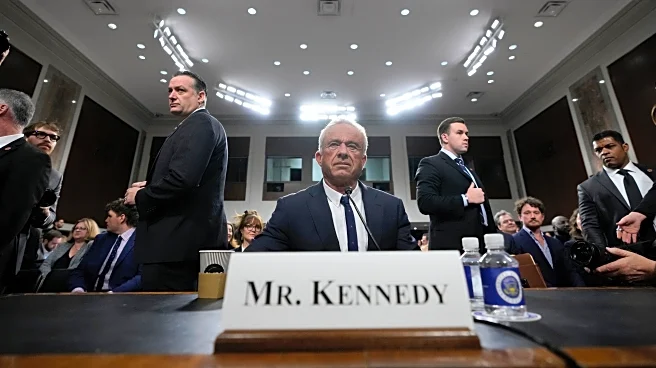What's Happening?
China's Shenzhou 20 spacecraft experienced a debris impact, leading to a delay in the return of its crew from the Tiangong space station. The incident has raised concerns about the growing threat of space debris and
its implications for international space cooperation. Experts suggest that this event could catalyze risk-reduction measures between China and the United States, potentially fostering collaboration on debris tracking and removal technologies. The dual-use nature of these systems, capable of both deorbiting satellites and disabling enemy spacecraft, adds complexity to the situation.
Why It's Important?
The Shenzhou 20 incident underscores the urgent need for effective space debris management, as the increasing volume of orbital junk poses risks to both civilian and military space operations. The potential for cooperation between major space powers like China and the U.S. could lead to advancements in debris mitigation technologies and international standards. This collaboration may enhance global security and safety in space, reducing the likelihood of conflicts and fostering peaceful exploration. The incident highlights the strategic importance of space as a domain for international relations and technological innovation.
What's Next?
China is preparing to launch the Shenzhou 22 spacecraft as a new lifeboat for its space station, while continuing to address debris issues. The incident may prompt discussions on international agreements for space debris management and rescue operations. Stakeholders, including space agencies and private companies, might collaborate to develop interoperable systems and shared protocols. The focus will likely be on enhancing debris tracking and removal capabilities, as well as establishing a framework for coordinated rescue missions.










